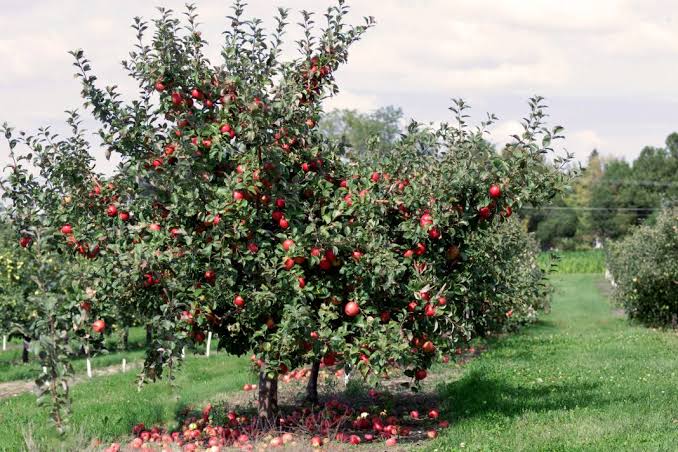Seek govt intervention, compensation
Jahangeer Ganaie
Srinagar, Sep 12 :
Apple growers across Kashmir are reeling under fresh distress as large-scale fruit fall has been reported from orchards at the peak of the harvesting season.
Already battered by extreme weather, pest infestations, and transport disruptions, farmers say this unexpected phenomenon is pushing them toward massive financial losses.
For months, the valley’s orchardists have struggled against prolonged dry spells, hailstorms, high-velocity winds, and diseases such as spider mite and rusting. Highway closures further choked the supply chain, leading to delays and rising freight costs. Now, when growers were finally ready to reap the fruits of their year-long toil, the sudden drop in apples has left them shocked.
“This is the first time in my life I am seeing apples falling from trees like this,” Abdul Rashid, an orchardist from Shopian, told the news agency—Kashmir News Observer (KNO). “We worked hard the whole year, fought pests and dry weather, but now prolonged rain spells during harvest have caused the fruit to drop in large numbers. It is heartbreaking.”
Growers say the fallen apples lose their quality instantly and are downgraded to second-grade produce, fetching extremely low prices in the market.
“We have faced weather and pest damages earlier too, but this sudden fruit fall is something entirely new,” said Ghulam Nabi, a grower from Pulwama. “If it continues, we may lose a major chunk of our produce. Our families depend solely on these orchards, and such losses threaten our very survival.”
Agricultural experts point to the unusual weather pattern as the main reason behind the crisis. Prolonged wet conditions, they say, weaken the fruit’s stem and attachment, causing premature drop.
“Continuous rainfall during the harvest period leads to physiological stress on trees. The moisture imbalance in soil and air directly impacts fruit holding capacity,” said Dr Shabir Ahmad Dar, a horticulture scientist. “But we need systematic field surveys to assess the extent and suggest preventive measures for the future.”
Officials from the Horticulture Department acknowledged receiving distress calls from multiple districts.
“While excessive rainfall seems to be the immediate trigger, we will work to find out other contributing factors like soil nutrition and orchard management practices,” said a senior horticulture officer.
Growers, however, say the government must go beyond assessments. “We urge immediate intervention. The authorities should not only study the problem but also announce compensation. This season has turned into a nightmare for us,” said Mohammad Yousuf, a farmer from Kulgam.
The crisis has cast a shadow over Kashmir’s apple industry, which is the backbone of the region’s horticulture sector. Employing lakhs of people and contributing thousands of crores to the economy, the industry was already struggling with transport bottlenecks and rising input costs.
Farmers fear that if the fruit fall persists, the valley’s apple output—and their livelihoods—will take another severe hit this year—(KNO)

